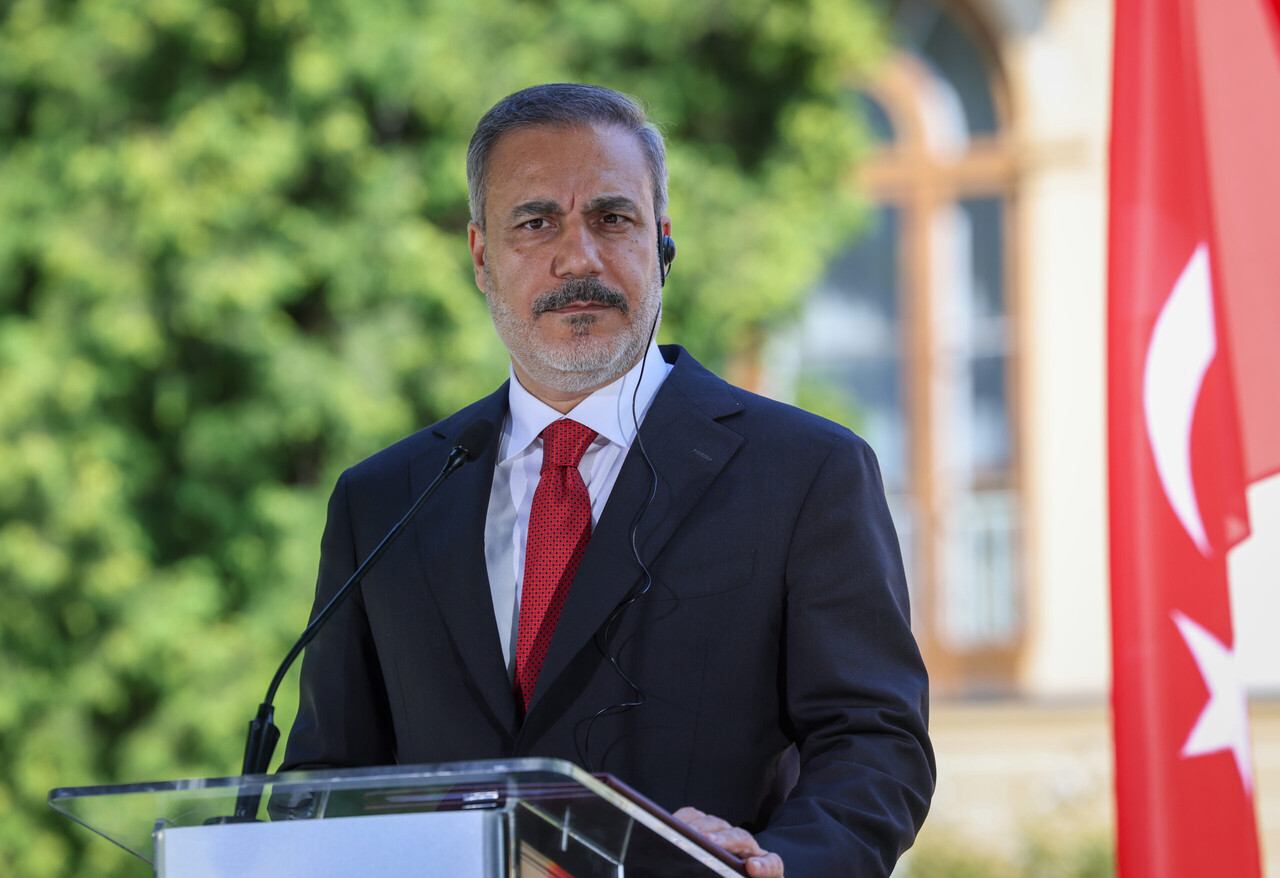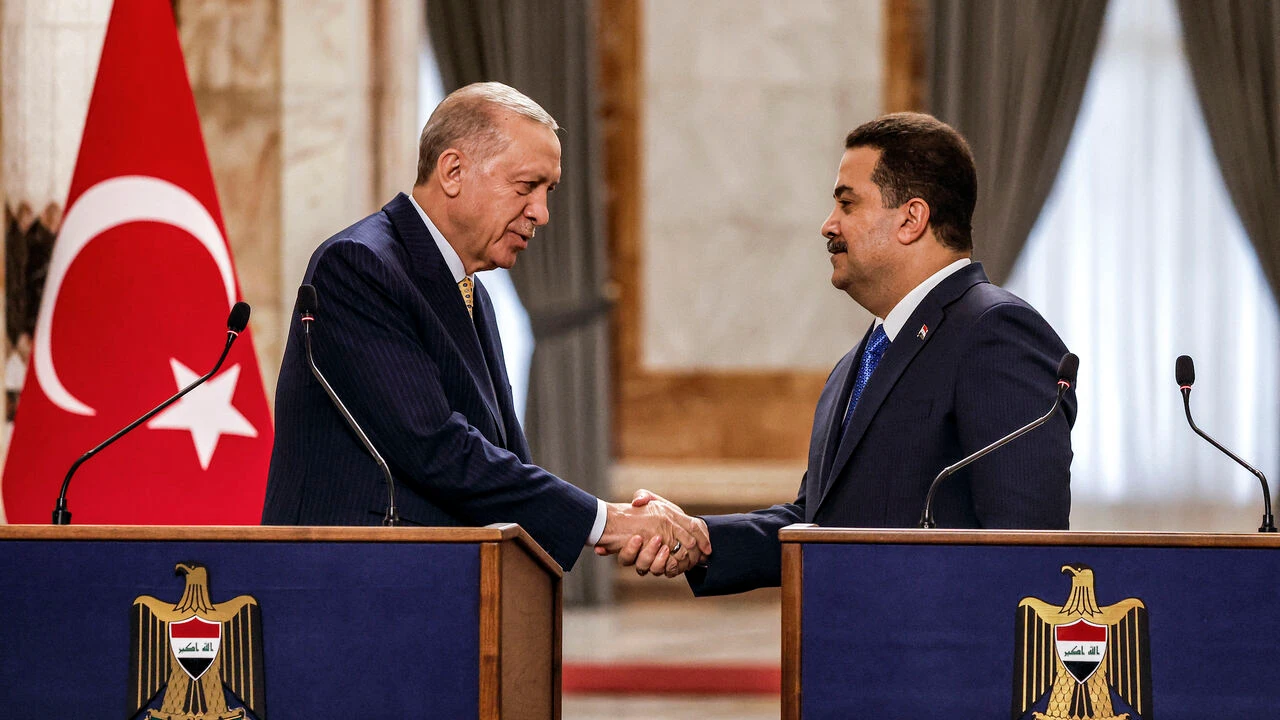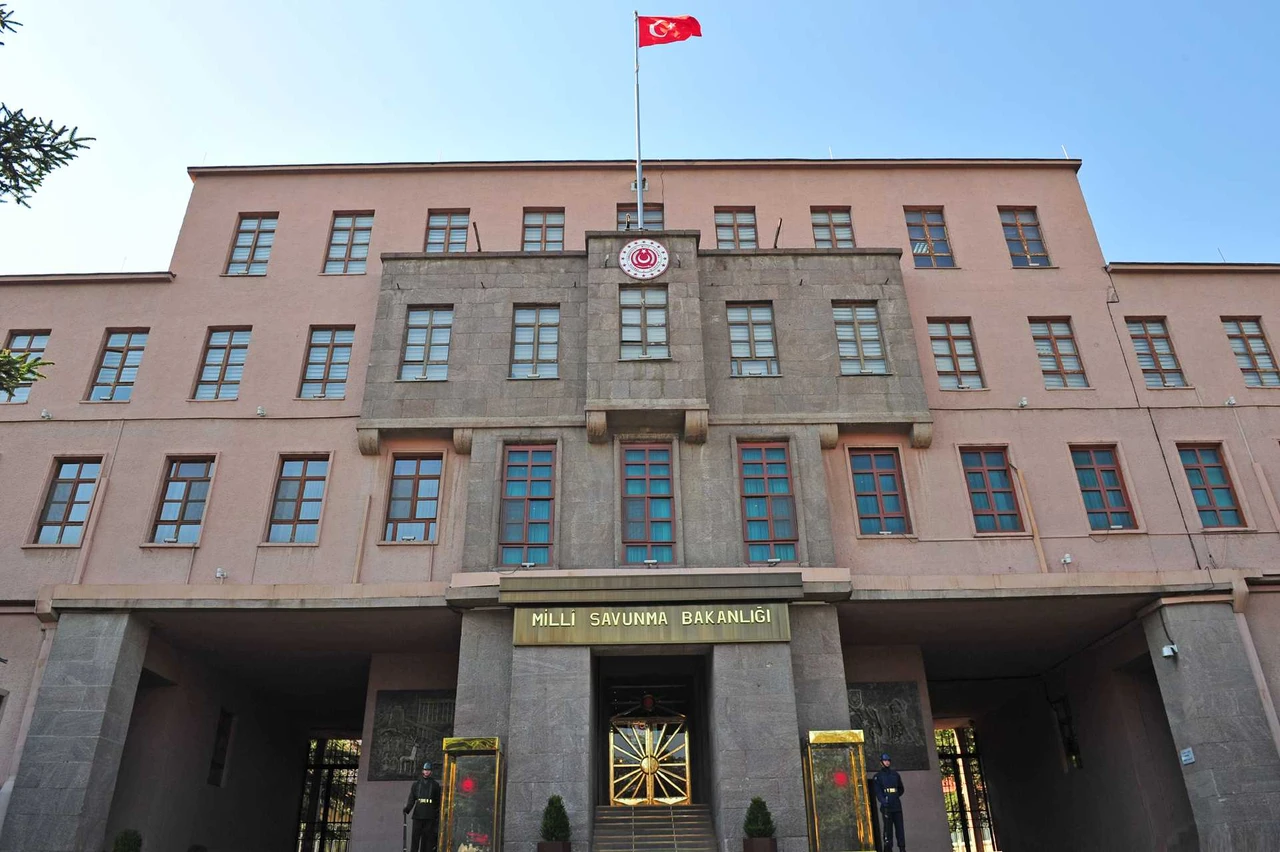Sanctions by NATO allies undermine alliance, says Foreign Minister Fidan
 Foreign Minister Hakan Fidan, in Foreign Ministers Meeting of Turkiye-Romania-Poland Trilateral Cooperation Process in Warsaw, Poland on June 26, 2024. (Anadolu Images)
Foreign Minister Hakan Fidan, in Foreign Ministers Meeting of Turkiye-Romania-Poland Trilateral Cooperation Process in Warsaw, Poland on June 26, 2024. (Anadolu Images)
Sanctions imposed by NATO allies on one another violate the core principles of the military alliance, Turkish Foreign Minister Hakan Fidan said Wednesday in Warsaw.
Speaking after a trilateral meeting with his Romanian and Polish counterparts, Fidan emphasized that sanctions and restrictions among NATO members, particularly in the defense industry, should be lifted. “The imposition of sanctions by alliance member countries on each other is not consistent with the spirit of alliance,” Fidan stated.
He argued that such measures weaken NATO’s deterrent capability and defense capacity, not just the targeted nation. Fidan also addressed the importance of collective action against terrorism, highlighting Türkiye’s longstanding struggle and the need for unconditional support from NATO allies.
On the topic of NATO commitments, Fidan stressed the necessity for all members to demonstrate maximum solidarity on sensitive issues like terrorism. He urged for the fulfillment of promises made at the NATO summit in Washington.
Diplomatic Efforts and Regional Security
Fidan reiterated Türkiye’s stance on prioritizing diplomacy and negotiation in the Russia-Ukraine conflict. He underscored the importance of the Montreux Convention in maintaining regional stability and noted Türkiye’s impartial enforcement of the treaty.
He highlighted NATO’s crucial role in ensuring Europe’s defense and security, warning against initiatives that might weaken NATO’s primary position. Fidan expressed concerns over certain international efforts that could undermine transatlantic security, urging for strengthened intra-NATO relations amid rising security challenges.
Economic and Defense Cooperation
Fidan praised the economic and defense ties between Türkiye and Poland, noting that the bilateral trade volume reached $13 billion last year. He expressed optimism for further defense industry cooperation and significant progress in Türkiye’s EU accession process during Poland’s EU Presidency in 2025.
Relations with Romania were described as a strategic partnership, with trade volumes exceeding $10 billion in recent years and a target of $15 billion for the coming year. Fidan emphasized defense collaboration, particularly in countering the mine threat in the Black Sea.
Palestinian Issue
Addressing the ongoing conflict in Gaza, Fidan condemned Israel’s actions and called for a reassessment of unconditional support for Israel by some countries. He stressed the need for a cease-fire, the release of captives, and the return of displaced Palestinians.
He also called for Israel to withdraw from occupied territories and emphasized efforts towards the reconstruction of Gaza. Fidan urged Israel to respond positively to international calls for peace.
Mine Threat in the Black Sea
Fidan highlighted the danger of drifting mines in the Black Sea, a consequence of the conflict in Ukraine. He noted the establishment of the Black Sea Mine Countermeasures Task Group by Türkiye, Romania, and Bulgaria, in line with NATO commitments made at the Vilnius summit.
NATO and EU Security Concerns
Fidan stressed the importance of NATO addressing the security concerns of all its members, including non-EU countries like Türkiye. He warned against the EU’s growing influence over NATO strategies, which could marginalize the security concerns of non-EU members.
Expressing satisfaction with the appointment of NATO’s new secretary general, Mark Rutte, Fidan voiced hope for a balanced approach to the security concerns of all NATO members.
“We believe that he will understand the security concerns of both us, who constitute the eastern flank of the alliance, as well as the northern flank and the rest of the Atlantic side, and develop balanced perspectives in developing strategies accordingly,” Fidan said.



